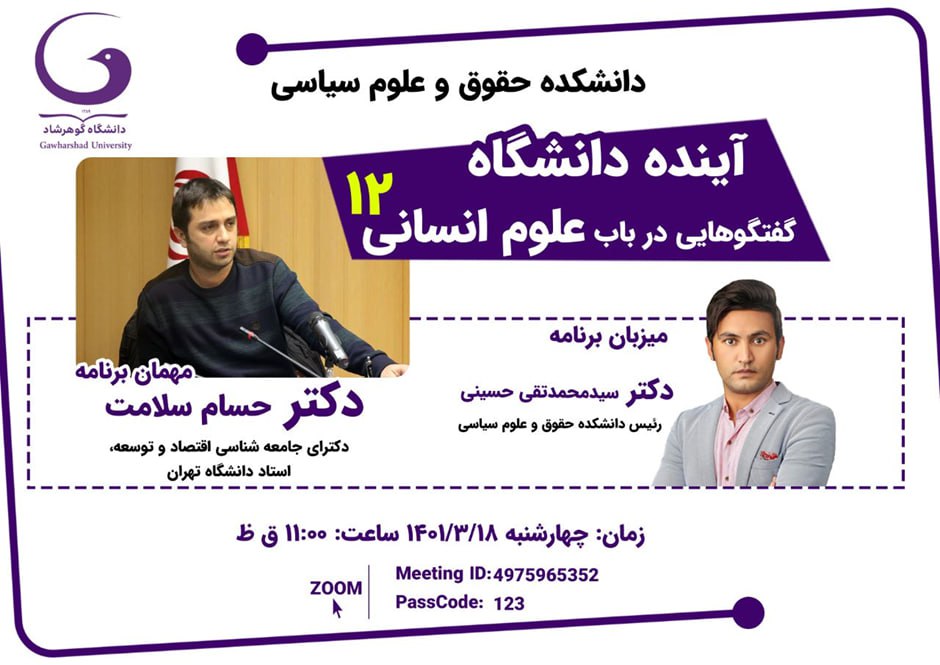Conversations in the field of humanities have begun with the initiative of the Faculty of Law and Political Science at Goharshad University. These sessions, which aim to enhance the scientific capacity of students, hold discussions on important social, economic, and political topics. In this session of the series, Dr. Hesam Salamat, a professor at Tehran University, was present as a speaker. He began his speech by emphasizing the necessity of coming together and being united, quoting Hannah Arendt. He pointed out that many governments today fear unity and strive to keep people more isolated in their homes. Dr. Salamat started the discussion by talking about the future, stating that we must imagine and envision it. Imagination should be directed towards the future, and it requires the power of imagination. He differentiated between imagination and delusion, stating that utopian thinking is a form of critical thought; thinking about ideal societies becomes more necessary as the situation worsens; one must be realistic and seek the impossible. This was expressed by the French National Movement in 1368, and it should be pursued in this era. The discussion then shifted to universities; they are part of the development process in the West and were the first institution that traditional worldviews wanted to eliminate. They stated that questioning the possibility of saving universities as an institution that brings about modernity is essential. Dr. Salamat added that universities have several functions, and if these functions are taken away from them, they will have no future.
1. Embracing knowledge: It means to delve into the humanities as much as possible, inviting human sciences for the growth of society and collective thinking; it means inviting self-reflection, as the subject of humanities is humans themselves and how we have become what we are, the work of humanities is to think about roles.
2. Social construction: Building society; it means finding reasons for being together, the formations of being together. Social construction means creating a new world.
3. Nation-building: If a university has a mission, it is at the forefront of nation-building. Nation-building, despite ethnic, political, and religious differences; building an equal whole. Inclusiveness means unity in diversity.
In conclusion, they mention that we should read books that can explain and solve our own problems or issues. For example, when we read Marx, we should know what problem we can think about by reading Marx or what problem we understand. They conclude their speech.
